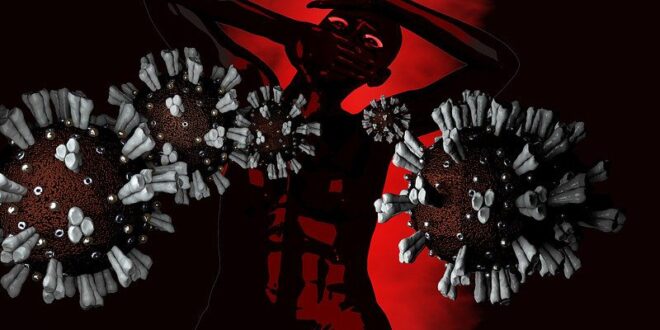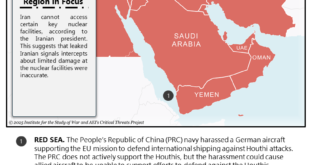Biological warfare in modern events has always elicited a sharp reaction from authorities and civilians alike. However, those motivated by political power and justifying their approach to the same often are less affronted by biological weapons and their use.
Global governance of biosecurity
Biological warfare is considered a form of warfare with low plausibility but high impact; i.e., while the scope of a biological agent being used in an attack may be low, the effect of an attack can be high if the agent has high virulence. Bioweapons usually are not considered major threats under the umbrella of Weapons of Mass destruction (WMD). The use of biological weapons is low in probability due to the existence of international treaties like the Biological Weapons Convention (BWC)—a treaty that prohibits the development, production, and acquisition of biological weapons.
However, treaties alone may not provide a foolproof system. International cooperation through organisations like INTERPOL is also essential in combating the illicit trade of biological weapons-related materials. These global organisations have already released key governing documents and tools to oversee information sharing, operational support, and investigative support in governing biological threats. These include global biosecurity programmes, police data and management analysis, animal agrocrime and agroterrorism, all by INTERPOL. Additionally, the United Nations Security Council (UNSC), in Resolution 1540 (2004), resolved the undersigned to prevent non-state actors from acquiring materials that may contribute to nuclear, biological, and chemical weapons. This resolution has been periodically reaffirmed, with its most recent iteration in 2022. In 2016, the UNSC adopted resolution 2325 to further its efforts towards anti-proliferation.
Across these global governance tools, countries engage in global health security cooperation, collaboration, and monitoring. This includes sharing intelligence, implementing adequate export controls, and strengthening border security. Efforts to enhance global health security, including the monitoring and reporting of outbreaks, play a role in preventing the spread of infectious diseases that non-state actors could exploit. Thus, usually, non-state actors are not significant biosecurity threats.
Despite the aforementioned treaties and resolutions, advances in biotechnology and the growing accessibility of dual-use technologies have raised concerns about the ungoverned use and research of biological weapons with low prevention methods. Non-state actors may seek to acquire naturally occurring biological agents such as bacteria or viruses, and use them for malicious purposes.
Cults, terrorists, and bioweapons
Non-state users of bioterrorism have been rare, or at least such attacks have rarely been attributed to larger non-state actors; the use has been criminal rather than for terrorism. However, the implications of such attacks have been political and large-scale. In 1984, for example, the Rajneeshee Cult centred in Oregon, United States, attempted to spread Salmonella enterica to influence the local elections in their favour. As the cult hosted a clinical facility, they could access the seed bacteria through a commercial farmer. The outbreak infected 751 people; however, authorities could not trace the disease to the cult. When they were investigated for other criminal activity, a similar strain of Salmonella was found in the cult’s clinic. Eventually, a few members admitted to the contamination using the seed bacteria.
Another case of a cult using bioweapons was the infamous Aum Shinrikyo in Japan. The cult allegedly engaged in a biological weapons programme from 1990-1995. This programme was discovered only after the failed impact of a Tokyo Subway attack using Sarin Gas in March 1995. Investigators then discovered three previous failed attempts of biological attacks, including one of anthrax. While the information surrounding this cult and its bioweapons programme is still fragmented, their attempts at using anthrax and acquiring the Ebola virus are indications of persistent, if not more significant, attacks.
In 1999, Al-Qaeda enlisted a biologist to develop biological weapons in a laboratory situated in Kandahar. The group was allegedly associated with a biochemist who was isolating a lethal strain of anthrax. In 2016, an alleged “Official internal note” from the Belgian Police claimed to suspect biological weapon-based activities by the Islamic State. However, the US’s Homeland Security had refuted such claims, and the note’s authenticity is not yet confirmed.
Enhancing domestic biosecurity
The above cases have occurred despite international collaborations like the BWC. While global governance instruments such as the BWC are essential in ensuring that biological weapons are not used in warfare, and other mechanisms like the Convention on Biological Diversity (CBD) are necessary to oversee trade and environmental responsibility and accountability, they do not cover biosecurity for non-accountable parties such as the non-state actors mentioned above.
Further, all cases have yet another feature in common. All the non-state actors were able to access virulent biological agents untraced. They were only prevented from further research and use when discovered through failed attacks or admission of members.
The inability of policing authorities and treaties to identify illegal research of biological weapons and use of the same highlights the need for more stringent biosecurity measures. While INTERPOL has programs and manuals dedicated to restricting bioterrorism, robust biosecurity measures must also prevent and govern access to virulent agents in a domestic capacity. The need for robust biosecurity measures to prevent unauthorised access to biological materials and laboratories is crucial. Secure handling, storage, and transportation of biological agents can mitigate the risk of these materials falling into the wrong hands.
Preventing non-state actors’ access to biological weapons requires a comprehensive and coordinated effort at the national and international levels. It involves addressing the root causes, improving biosecurity measures, and enhancing international cooperation to detect and respond to potential threats. Ongoing vigilance and adaptation to emerging technologies are crucial in mitigating the risks associated with the proliferation of biological weapons.
The first step would be to establish biosecurity agencies in every undersigned country under the BWC that would report to INTERPOL regarding any discrepancies in virulent biological agents’ transfer, trade, and purchase. These agencies function separately but in collaboration with any domestic biosecurity agencies. Additionally, these agencies would have to govern the following, as identified by the Global Partnership on Biosecurity Working Group, under the Italian G7 presidency:
Safeguard and oversee materials posing risks of biological proliferation.
Interacting with local biosafety labs to ensure that all materials and biological agents are accounted for and disposal methods are standard to prevent accidental non-state access.
Establish and uphold efficient protocols to prevent, anticipate, detect, and thwart the deliberate misuse of biological agents.
Enhance domestic and global capacities to identify illegal research on biological agents promptly.
The threat posed by biological warfare is more easily accessible than other WMDs and less easily detectable until it is too late to curb impact. While international collaborations and treaties play a significant role, nation-states must also create agencies to oversee biosecurity and protect populations from biological attacks on humans, animals and crops. There should be a separate measure that focuses on accidents in the form of leakages, research, and development in drug development and food security while collaborating with agencies to ensure limited non-state access, no leakages, and the correct disposal of biological agents. By taking proactive measures and remaining vigilant in the face of emerging threats, we can mitigate the risks associated with biological warfare and safeguard global security.
 Eurasia Press & News
Eurasia Press & News



